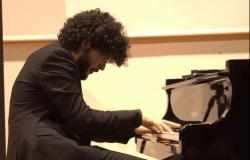
Summer is forcefully approaching and with it the “natural but deceptive” need to stay away from football after the ball has been rolling in our heads for ten long months. But will it be like this? Especially in even years we know how this break between one season and another is equal to zero due to European Championships or World Championships and if we want we can also throw in the Olympics where, however, football has always played a smaller part important.
This summer will therefore be dedicated not only to the Parisian Five Rings but also to the European Championships in which Italy arrives as the holder of the tournament but not as the favorite placed in a steel group with Croatia, Albania and Spain.
In the history of this much younger competition than the world championships as it started “only” in 1960, the Italian national team has only won in two editions: 1968, the final phase of which was played in Italy, and 2020 (which however due to the Covid pandemic was played a year later).
Few, however, remember that in 1980 the European Championships were held in Italy and that they still included the presence of two groups of four teams each, the first groups of which had to face each other in the final, while for the two second groups there remained the consolation final which had as its goal, the third place.
Those were years in which the national teams registered with UEFA were much fewer than today. In fact, instead of Yugoslavia at the time, today we have 7 national teams; two national teams emerged from Czechoslovakia and another 15 national teams emerged from the former Soviet Union, of which 12 were “European”.
In that 1980 edition the two groups were very balanced. In group A the urn wanted there to be fascinating challenges with the Dutch having lost two finals in the World Championships against West Germany who had beaten them in the ’74 World Cup.
There was also Czechoslovakia, holders of the tournament who four years earlier (1976 edition) had beaten the Panzers who in turn on that date were reigning world champions and outgoing European champions. Fourth trouble and then revealed to be the Cinderella of the group was Greece.
In group B, Italy, fresh from the excellent Argentinian World Cup (two years later they would win the one on Hispanic soil) were in the midst of the football betting hurricane, in the group they faced England with then star Keegan, the always difficult and fearsome Belgium and that Spain which had not yet become great.
West Germany dominated Group A with two wins and a draw in their final match against Greece. As predicted, Germany reached the final by defeating Holland and Czechoslovakia.
In group B there was more balance. The Italian national team paid dearly for the football betting affair with Paolo Rossi disqualified.
Bearzot’s men drew in the first match against a modest Spain in whose ranks we struggle to find important names.
Indeed, striker Jesús Satrústegui had a seemingly legitimate goal disallowed. Belgium and England drew 1-1, a fact of no small importance given that with the same points and goal difference it was the goal difference that defined the positions in the league table and if still tied the highest goals scored were used.
Two victories arrived on the second day: Belgium beat Spain 2-1 and the Italian national team beat England 1-0 with a majestic goal from Tardelli who spent most of the match marking the dangerous Keegan but did well to break free in the away area in the 79th minute and on Graziani’s cross to score the winning goal.
That celebration is practically (and indeed will be iconised) the first version of the almost identical one at the Santiago Bernabeu in the world final in the presence of Sandro Pertini.
But let’s go back to the match of ’80. The victory, however, apart from putting England out of the game, didn’t do much for Zoff and his teammates as they found themselves on three points equal to Belgium but with Guy Thys’ national team having scored three goals against just one of Bearzot’s men, he had two out of three favorable results.
As expected, Belgium implemented a defeatist, unnerving tactic by resorting to the offside solution typical of the Nordic national teams of that period and for Antognoni and his teammates it was the middle of the night.
Indeed, it was the Belgians who came close to scoring on the counterattack on at least two occasions. Italy, second in the group, had the right to play in the final for 3rd place, but lost on penalties against Czechoslovakia of Nehoda and Panenka. That team with Gentile, Cabrini, Collocati, Graziani, Antognoni, Tardelli managed to build the most important feat of 1982 from that disappointment.
The final between West Germany and Belgium was won by the Whites of coach Jupp Derwall 2-1. Hrubesch’s goal arrives in the 10th minute. The Belgians drew level with René Vandereycken’s penalty in the 75th minute but Hrubesch gave the European Cup to West Germany in the 89th minute.
West Germany: Schumacher; Briegel (Cullmann 55′), Karl-Heinz Förster, Stieleke, Dietz (c), Kaltz; Müller, Rummenigge, Schuster; Hrubesch, Allofs
Coach: Jupp Derwall.
Belgium: Pfaff; Renquin, Millecamps, Meeuws, Gerets; Mommens, Vandereycken, Van Moer, Cools (c); Ceulemans; Van der Elst
Coach: Guy Thys
Referee: Nicolae Rainea (Romania)





